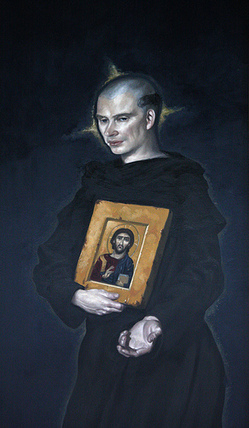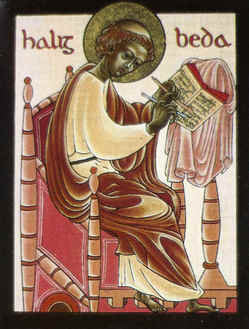
O God, Who by the preaching and wondrous deeds of blessed
Augustine, Thy Confessor and Bishop, did vouchsafe to enlighten the English
nation with the light of true faith; grant that his intercession the
hearts of the erring may return to
the unity of Thy truth, and that we may be one mind in doing Thy holy will.
Saint Augustine of Canterbury (d. 604), was the first bishop
of Canterbury, sent by Pope Saint Gregory the Great to evangelize the pagan
English peoples.
Saint Augustine had been a monk of Saint Gregory's monastery on the Caelian Hill in Rome. In 595/596 he was sent to England first as the abbot of a group of monks. He established himself at Canterbury, the capital of the then powerful Kingdom of Kent, and in time baptized King Ethelbert.
Augustine is credited for laying the very foundation of the Ecclesia Anglicana because of his pastoral vision. That he was a close associate to Gregory the Great one thinks that the friendship had some role in the former's zeal for the Kingdom. Augustine's method of evangelizing England was not notable: he sent missionaries to all parts of England --how else would you preach the Gospel. But what was notable was his establishing Benedictine monastic life there, especially adjacent to the cathedral. So, looking at English ecclesial life you will notice the pattern of cathedrals have abbeys attached to them.


